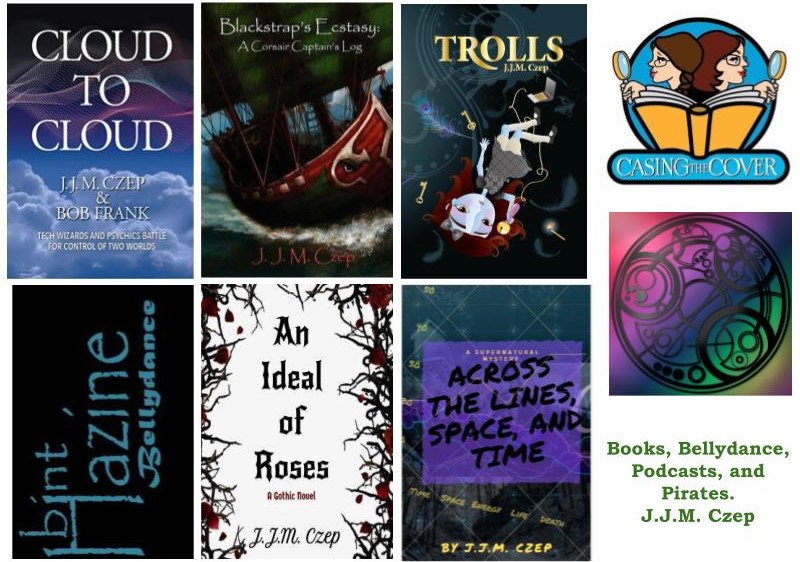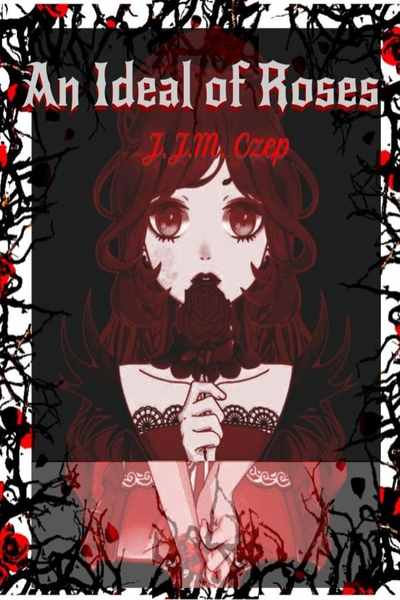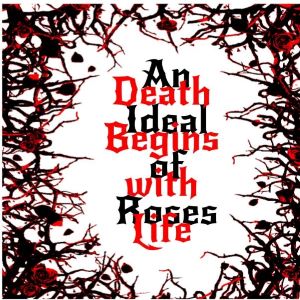Death Begins with Life
Rituals, as humans we create them, master them, lean upon them; to explain, direct, and stem the flood of emotions to which we are so prone. Be they joy, grief, love, or unity, it is ritual that frames and channels the emotion of each experience. Acts and service in edification to etiquette and culture. Events thrust upon young lives. Roles dictated by birth and time.
These proper manners, and more so, a wariness toward those who fail to perform as prescribed become disconcerting when not adhered to. Most so, within the more solemn rites.
That first tangible memory to harken upon the lessons pressed into my being included flickering candles whose mutilated tapers of bubbled wax, from ornamented sconces and candelabra, illuminated gloomy rooms.
Slivers of daylight scarcely ribboned the edges of those lush velvet curtains that seemed to hold back early Spring that even beyond thick fabric warmed stained glass artistry, the designs of which elude memory. The caress of nature’s rebirth little enlivened the space so chilled by lack of her light. More morbid still were the aforementioned emotions of gathered attendees garbed in somber costume.
From these earliest memories, rituals fill my recollection. I remember my small self at five, though Aunt Ama once claimed my years to be closer to seven.
Age and time are curious things.
What does stand in great clarity is the prim yet yielding lace within which agile fingers clutched at the starched trim of a black pinafore. The wriggling of tiny digits, gloved in equally dark lace, working against rigid cloth.
A memory which continues to scratch my skin.
The refraction of overhanging lamps warped in curved toes of polished shoes. A squeak of leather marking time in memory with each shift of toe and heel. The simple ringlets of my hair, pinned beneath a mourning bonnet, and the tickle at my ears and brow.
Even in reminiscence my scalp itched.
Custom and ordinance turned a pensive child into a doll-like figure set between a set of looming caskets. A child so slight of build powdered cheeks upturned to peer into the paired ornamental boxes. Mirrored within polished gold trim, my blue eyes reverberated emotions that seemed foreign and distant at the time, though now they are companions so constant I scarce know a breath without them.
The lace collar clawed at tender skin as my toes raised me to gape into the cases.
How those enigmatic carvings of tendriled vine and leaf haunt dreams past to present. With a symmetry sinister in it’s mimicry of nature’s unmetered, modest beauty. Some petulant artist’s attempt to capture life plagiarized from terminated arbors expertly splintered to encase within a still warm carapace, mortal husks once robust with virility and allure. The labyrinthine blooms an apery of emerging Spring and the covenant of life these cadavers would never again appraise.
With the same infernal genius, mortician’s alchemy dismissed blood from sedate vestige of man and wife cradled within twin mahogany cadavers. Faces, powdered aspects of those once beloved souls. Bodies, hollow and lacking, unfamiliar to the child reflected in metallic embellishment.
I felt as a stranger in their funereal presence, no more akin to a living flower than the roses etched along the coffins. In those memories I experience a peace as all consuming as when first I looked upon the vacant faces of my parents.
Eyes mimeoed unfocused, as my ears entertained the music of conversation. All comprehension of which lost in the wake of years and dreams. In these cheerless moments before sleep, I attend the mutterings of long ago. A fantasy of spirits garbed in dispiriting chroma and modesty. Aberrations filed against adjacent walls of drear to seat in pewed arrangement. Their whispers paraded with them. As if watched from brink of distant threshold, words solidified in fleeting twinklings of a mourners' cavalcade.
“Why is the poor dear not crying?” Gentle hands settle on the dusky ringlets cascading from my bonnet.
“The child has not cried at all since the deaths. As I understand it.” More criticism than concern lilted the words passed from one echo to another.
Always in the stillness of memory I am silent. If I heard them then in the mournfulness of emotions, I did not betray so. That delicate crown of mahogany curls shifted only in observance to corpses in view. The ebony satin and lace tie at the small of my back brushed the hems of my skirts. Through lace the working of fingers, hands at incompliant hem, the only movement I failed to quiet.
“The poor child is too young, too innocent to understand.” Another voice, unfamiliar, in a room of kindred, most estranged.
They knew me as progeny to recently deceased Gerard Hadowen and wife, Marguerite.
The dearest little Magareen.
My paternal relatives until that day had removed themselves from introduction. Father, one of multifarious heirs to affluence, had been black sheep to the House of Hadowen. A status earned through balking of ceremony.
Wed for love in lieu of blood. Father’s death offered opportunity for succession to his lonely descendent.
Too callow was I then to envisage the clash that persisted long before my allocation was ordained.
In that bygone liturgy some stood in attendance to shelter one they perceived as guileless urchin from a realm as ominous and crushing as that dismal chamber.
Yet, among those of pure Hadowen line, they must certainly have damned the perceived muddled blood of estranged offspring. Souls willing to forget and forego involvement to a welp they scantly knew.
Mother’s faction too persisted inaccessibility.
Gerard and Marguerite Hadowen cloistered themselves, and by extension, so too their offspring.
Others however, moved to remit a bairn to a legitimate household.
“It has been a week. By now she must be aware her parents are not coming home.” So many questioning voices continued their flit about my dreams.
It took time for effectuation of genuine concern to be expected, knowing little about a reticent orphan among bereaved strangers.
In visions I remained riveted to caskets, bouquets, and departed Mama and Papa.
Thoughts dwindled from the lull of customs to a stirred yearning to caress the velvety petals of a milky rose among a sanguine bouquet adorned upon my mother’s bosom.
I understood.
A memory of the day of death reared within the framework of the funerary rites. A scene so long past, cast an observance seemingly created to set free a child made more small from the hysterics of an effortlessly dismayed nursemaid. Before the nurse’s fragile mind collapsed due to grisly sights splayed before her that savage evening I recalled the blood rushing from her face, making her as pale as that velvet bloom.
“She must know her mother and father are not sleeping.” The echoes of voices analyzed thoughts a child should have been ruminating.
“She found them, yes?” Murmurs and nonsense tumbled among memories.
“Dreadful. The poor dear must be traumatized. That’s the explanation for her lack of emotion.”
I blocked their words, their voices, with private thoughts. How much do the young understand without words?
Few understood as I did.
Roses, petals folded under gentle pressure as my fingers crushed and caressed.
“The poor thing was asleep beside her mother.” Yet another murmur slipped between thoughts.
My focus lost to the folds and curves of the white rose.
“Covered in blood, as I heard it.” Horrified retellings burbled through harsh whispers hurled at the diminutive back of a child.
Strange rooms shrank and stretched in twists and turns of lofting visions. I fought to regain reality in those distant moments.
“Dear gods. Are you certain? Was she hurt?” Feigned concern imbued with suspicious musings.
The richly carpeted floor, angled, lurched, ebbed, and rose beneath the glossy leather shoes. The fleeting vision of mother’s pale face, flashed but a moment, smeared in blood, another blink and the face was again washed clean by mortician’s hands.
“No, no, none of the blood was hers.” A hint of truth, but little emotion.
The room of memories stilled, I closed my eyes as hollowness threatened my stomach.
“Not a scratch on the child, I heard.” Veracity disguised as hearsay.
Following a labyrinth of petals within the bouquet trained renewed focus. The course of nature’s patterns stilling rampant thoughts, allowing warmth to wash over me. My mind tumbled toward the first moment I no longer felt alone among the array of family scarcely met. As the space shrank around me a feeling of familiarity consumed at last .
“Have authorities found the killer yet? Do they have a motive?” More preconceived answers, hidden in the flimsy guise of questions.
“Not so much as a print or strand of hair. And not a thing in the house out of place to indicate thievery.” Questioning even modern science to give credence to rumor, suspicion, old ways, and fear.
A hand fell over my tiny fingers. I tilted my head ever so slightly in observance of the movement, scanning wrinkles and delicate grey hairs along broad splayed fingers, covering my diminutive lace gloves.
“The child would not leave her mother’s side, though servants tried to pry her away.” Statements made, as if in answer to a query not voiced.
“Did she kick or scream?” Another reaction expected of my age.
“No, no, not at all. She was like a stone.” Again, words disguised concern born of not abiding ritual. “She clung to her mother’s skirts.”
Fingernails, yellowed though clean, straight and strong, trimmed except the smallest nail. This, longer than others, longer than my smallest finger.
“The authorities had to carry her away.” Spoken as one would of a criminal. “She didn’t fight them. They were less gentle than the servants.”
Indecision tossed my thoughts, roses and hand, gentle or strong. The fingers guided palm to bloom. Pulled free, the stem cut a verdant line. The hand was gone and with it, the rose.
“Did she cry when taken from her mother?” The voices closed the spaces in my mind.
My memory at last turned to the crowd. Though the faces meant nothing, I sensed none belonged to the hand that interrupted my idyllic observance of the bouquet.
“Too struck, I suspect.” Words echoed in memory as I stared into the pale eyes of a woman with a steel hued updo.
I had taken in the high collared and ebony lace overlay on the woman’s dress.
“The poor, sweet Magareen.” From this collection of visions another woman, close in age to Mama, stepped free.
Her arms outstretched.
My eyes flicked between the women. So much the same, in dress, manner, and appearance. This second one bent to me.
Her dress, so strikingly similar to the others, was marked by a deep purple cameo at her throat, whilst upon the other a brilliant red shone at her throat.
In some reverberations of these recollections my young self gives in to the comforting gesture, while in others I am restrained by fetters of discipline.
I know not which act to have been true.
“She does not know you, Amalia.” A gentleman, dapper as I recalled, cast a scolding tone upon the woman I would come to recognize as my beloved Aunt Ama.
“She knows none of us.” Yet another gentleman, this one in a striking red bow tie, offered a tone less scolding yet equally distant of emotion.
“She never will if we do not offer some comfort to her. She is my sister’s heir.” Aunt Amalia’s younger vision leaned in. “I will care for her.”
Memory turned from faces, voices, emotion.
Visions blurred.
Roses trembled, bowed, and dispersed.
“Do not frighten the child.” This voice had no soul to bind to as far as this dream allowed.
“There is time to break the chains of fear and darkness that imprison her innocent heart.” Aunt Amalia, again, gentle, maternal, bright with kindness.
“It is not fear that makes her keep distance.” This unharnessed voice haunted further.
This small self within me fought for stillness and calm, to see without looking, to focus without a point to meter upon.
“Then what?” A false concern always surrounded Ama, so long ago, and even now.
“Guilt.” The statement so void of emotion stilled room and visions.
“Elestren, this is not the place.” Protests meant little and less to the woman who first loomed in my visions.
“She needs to go to the Hart. You know this, Amalia.” Elestren was the first I had known of a nightmare.
The expression that twisted Amalia’s face was the second. “No. She is a child and will be raised as such.
“And when she is grown. What then?”
And this the third. “Then, we will see.”
Few would see nor understand as I.












Comments (2)
See all